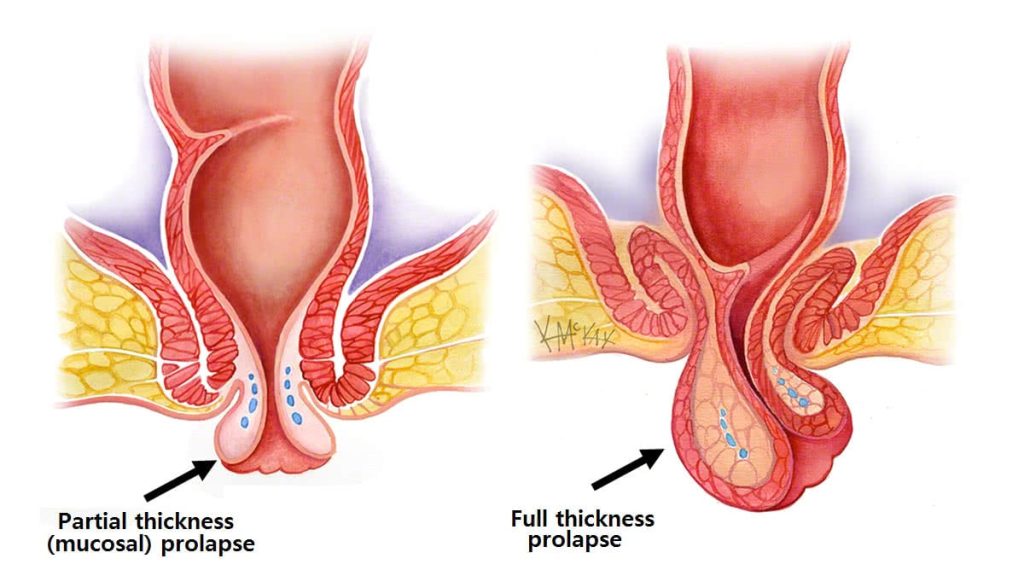Rectal Prolapse
What is Rectal Prolapse?
Your rectum is the last segment of your large intestine before your anus. This is where poop prepares to exit your body. When poop arrives in your rectum, it triggers the urge to defecate (poop), and a network of muscles pushes the poop out through your anus. But when rectal prolapse occurs, the rectum itself travels with it, slipping down telescope-style into the anal canal — and sometimes out the other side.
“Prolapse” is the term healthcare providers use to describe any body part that has fallen from its normal position in your body. It usually means that the muscles supporting the part have weakened or deteriorated. Some weakening or deterioration is normal with aging, but extra wear and tear on the muscles can accelerate the process. Childbirth, chronic constipation or diarrhea can affect your rectum..

What causes rectal prolapse?
Failure of the muscles that hold the rectum in place leads to rectal prolapse. Many things may contribute to this. Some possibilities include:
1. Aging.
2. Pregnancy and childbirth.
3. Previous injury or surgery to your pelvis.
4. Chronic constipation or diarrhea.
5. Intestinal parasite infections.
6. Chronic coughing or sneezing.

